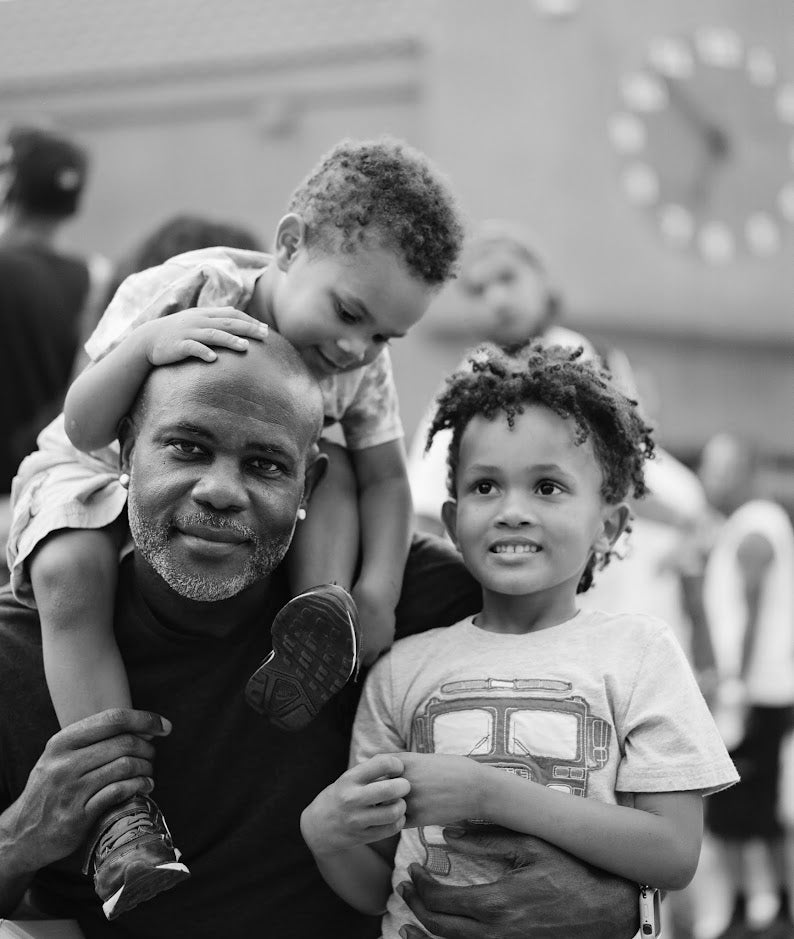My 2 sons call me "Shannon" instead of "Dad." And for good reason...
Posted by SHANNON RAWLS

Parents often prioritize instilling respect in their children, emphasizing polite greetings, such as saying "hello" when meeting someone new, using "please" and "thank you," and addressing older individuals with formal titles. However, the question arises: Is the use of formal titles equally important within the family unit?
Some parents, like myself, are comfortable with their children addressing them by their first names, viewing it as an expression of respect through actions rather than formalities.
Today's kids are not yesterdays kids.
In contemporary society, there appears to be a significant generation gap regarding the traditional "respect your elders" adage. While respect remains a fundamental value shaped by parental teachings and cultural influences, societal shifts have brought about changes in its expression.
Unlike previous generations, today's children engage with older individuals more casually, freely expressing their viewpoints, engaging in conversation, and forming meaningful connections. They perceive respect as encompassing actions beyond mere verbal expressions.
If you, as an adult, cannot not DO and BE a great and respectful example of a human, then children today will not respect you, no matter the title you demand them to use.
Children desire their parents to be their friends, too.
Many children opt to address their parents by their first names, aiming to foster a less formal and more companionable relationship. Drawing parallels with addressing close friends by their first names, children see this as a step towards establishing a friendlier bond with their parents, facilitating deeper emotional connections.
Make no mistake, yours kids are NOT your buddies. They need to be parented and reared in a fashion that will establish boundaries and rules. They need to understand that you are in charge of their safety and your decisions are for the greater good of them becoming fantastic adults. But when the "parents" protection guard is down, children want to know they can come to you as they would a "bestie" and talk to you without restrictions.
They want to be like you.
I intend to be my sons hero. I will walk and talk in the example of a great man that I expect them to grow to be. Children oberve your behaviors closely and if you are moving in a fashion that is desired by the greater society, your kids will want to be like you.
As such, observational learning also plays a role in children's choice of addressing their parents. They often mimic the language patterns they observe at home, including calling their parents by their first names, reflecting their keen awareness of familial dynamics and their desire to emulate adult behavior.
Your kids are getting a taste of what's to come as an adult.
This inclination towards using first names can also be viewed as children's tentative steps towards adulthood. By adopting adult-like behaviors, such as addressing individuals by their first names, children seek to accelerate their maturity and emulate the role models they admire, namely, their parents.
My parents naming me "Shannon" was a challenge in my early years. Considering my name was orginally a male centric name, after the turn of that last century the name Shannon became used and more widely adopted by women. The "You have a girls name" became a staple statement in my childhood and it took great self-awareness and confidence to overcome that. As a result of this hurdle I have emerged as an extremely confident individual in pretty much everything I do.
I want the same for my sons. I want them to be proud of their names and expect the same respect from their peers, family & friends when their name is called. Allowing them to address me by my first name gives them a glimpse of how proud I am about being called "Shannon" and I fully expect them to have the same confidence in theirs. In fact... I already see the positive effect of this in my eldest son at the age of 8, today.
I actually like it.
Interestingly, some parents embrace this departure from tradition and find comfort in being addressed by their first names. For them, it alleviates the burden of parental expectations, allowing for a more relaxed dynamic within the family. One other father friend of mine expressed relief, stating that being addressed by his first name rather than "dad" eased the pressure of conforming to societal ideals of fatherhood.
In conclusion, the practice of children addressing their parents by their first names reflects evolving familial dynamics and changing societal norms. While rooted in respect, this trend underscores the complexities of parent-child relationships and the diverse ways in which families navigate them.
Share your experiences in the comments—do your children address you by your first name, and how do you perceive this practice?
SHARE:






